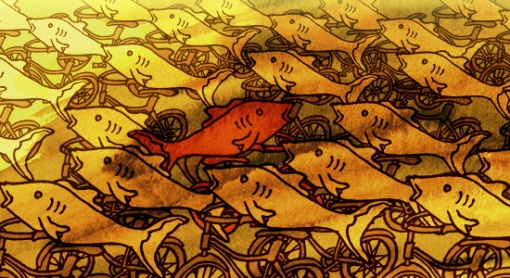
One aspect of my research is to challenge dominant discourses in entrepreneurship studies. Much of the academic literature exploring entrepreneurship is US-based and explores high growth business models or the impact of entrepreneurship on the economy. Research methodologies favoured by this type of research tends to be quantitative – ‘scientific’. In contrast, women researchers of female entrepreneurship argue that a subjective approach can expose different insights. Bringing their own subjective experience enables women to investigate the subject of entrepreneurship from a new perspective.
…drawing on personal knowledge, in the light of feminist theory, allows women to express their experiences of living gendered lives in conditions of social inequality” (Ramazanoglu and Holland, 2004).
Inspired by this approach, I draw on my first hand knowledge and experience of cultural work, as someone who ran a small textiles business, to inform my study of cultural entrepreneurship. The intention is to listen more carefully to aspects of cultural work based on my own perspective and experience. Furthermore, the dynamic between researcher and interviewees is based on this shared and acknowledged understanding that the researcher is ‘one of us’ rather than an ‘objective’ observer. The idea that I know how it feels to be involved in cultural work, to some extent, removes the opportunity for exaggeration or for excessive invention from the interviewees. They know that I know. This is not born from a sense that cultural workers will ‘lie’ but rather that in my experience, they are often caught in ‘talking up’ their work and experience. In an environment in which the individual worker is often the brand and continuously selling their skills, there can be a lack of critical reflection.
In addition to having some insights into cultural entrepreneurship first hand, I also know the interviewees, having selected them from my personal contacts. Again, this has revealed an opportunity to be informal and created a ‘gossip’ style of interview. Throughout the interview, we will refer to individuals we both know. The process enables a form of self-identification in relation or in comparison to others.

